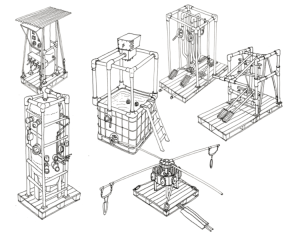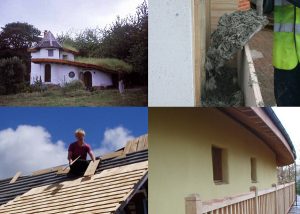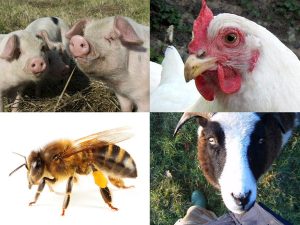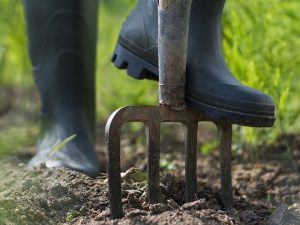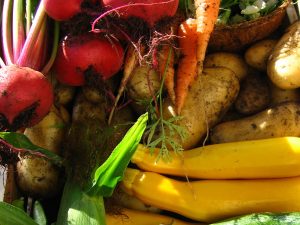In response to the pervasive reach of the global agro-industrial complex, growing numbers of farmers across the world are coming together as co-operative organisations to promote and protect small-scale organic food production and environmental stewardship. We take a look below at some of the groups promoting open source agriculture with farmer driven technologies, spearheaded by the international Farm Hack movement.
Pioneered by the Greenhorns movement of young farmers in the USA, Farm Hack was born in 2010 as a ‘community of collaborators interested in developing and sharing open-source tools for a resilient agriculture’. Their extensive online library features tools working from pedal power, solar power and horse power, with the needs of small scale ecological farmers at its heart. Want to 3D print your own Jang seed roller? There’s a tool for that. Looking for an easier way to organically weed? Here you go. Seeking a low-impact way to transport and display your produce at local markets? You need look no further. For any gardeners out there, this creative idea to power a water pump using a garden swing might also be of interest.
Crucially, all of this information is freely available to all on an open source Creative Commons licensed basis. This is in stark contrast to the digital agriculture tools offered by agri-industrial players such as Climate Corporation, owned by Monsanto. It is also distinct from the emerging market in pirated – though arguably not illegally – software to crack firmware designed to prevent so-called ‘unauthorised’ repairs to the likes of tractors provided by John Deere and other manufacturers. A story of its own, best saved for another time, but one which is undoubtedly a significant factor in the development of Farm Hack and similar movements.
The Farm Hack community is by no means confined to the internet, however. Regular meet-ups are taking place across the USA and some in Europe. By linking up with existing networks, Farm Hack joined Austria’s Elevate Festival and the Manchester Festival of Science via Farm Lab in 2015. A UK branch was established in the same year, launched by the Landworkers’ Alliance at an event in Gloucestershire – watch the video below to hear more about it.
This in turn inspired a second Farm Hack weekend in Scotland in October 2016, this time in collaboration with Scottish charity Common Good Food. A varied programme of workshops included scything with Tearlach Quinnell, design solutions with machinery co-op MAKlab, access to land with the Scottish Farm Land Trust, and sausage-making, sourdough bread baking, blacksmithing and green woodworking to name but a few.
Meanwhile across the Channel L’Atelier Paysan cooperative is working with French farmers and agricultural organisations, designing open source agriculture tools and small-scale machinery which can be easily built and adapted. They offer a programme of courses, ranging from open work days where everyone brings a tool to work on, adapt or repair using basic metalwork to longer intensive courses building larger, more complex tools. Also available (in both French and English) is an online tools library of collectively validated designs, technical drawings and tutorials. A recent interview with team members Fabrice Clerc and Julien Reynier, exploring their ideas about self-build communities in farming, can be found here, translated into English from the original French article.
Online and offline, L’Atelier Paysan, Farm Hack and fellow open source agriculture organisations embody the same ethos as the global La Via Campesina movement, ‘defending small-scale sustainable agriculture as a way to promote social justice and dignity’. Together, they represent hope in the face of the onslaught of modern agribusiness giants. Indeed, just reading the meeting minutes from the launch of UK Farm Hack is inspiration enough and evidence that the possibilities for sustainable innovation are endless: topics for further exploration included website hack, generation hack, seed hack, soil hack, pedal hack, hemp hack and mobile building hack. The list is surely growing and I for one very much look forward to seeing the open source agriculture movement flourish in the coming months and years.
If you’re a farmer, grower, designer, engineer, architect or simply just curious, you can get involved by visiting Farm Hack’s Get Started page. To keep up to date with plans for future Farm Hack events in Scotland, sign up to Common Good Food’s mailing list here. You can also find further information about the UK branch via the Land Workers’ Alliance. And if you’re already a ‘farm hacker’ yourself, we’d love to hear from you about your experiences, too – please do feel free to add your comments below.







